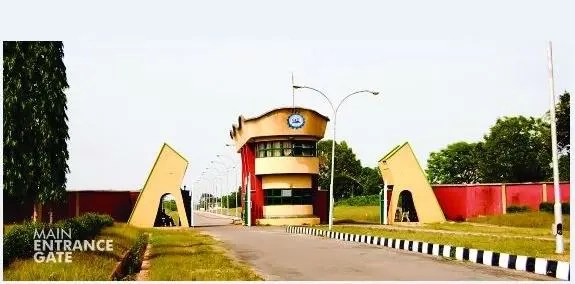
With only a year to go before the United Nations Millennium Development Goals initiative ends, academics in Sub-Saharan Africa have been exercising their minds about ways forward for higher education post-2015. They see unfinished business in the education goal.
A number of African academics made submissions to the Association of Commonwealth Universities, or ACU, campaign dubbed “The World Beyond 2015. Is higher education ready?” which is debating how universities might effectively engage with the post Millennium Development Goals, or MDGs, agenda.
Professor Goolam Mohamedbhai – former secretary general of the Association of African Universities and former president of the International Association of Universities – pointed out that not all African countries will have achieved the MDGs when they expire at the end of this year.
Nevertheless, there had been significant progress in almost all nations. “There has been a continuous decline in extreme poverty; life expectancy at birth has increased; prevalence of HIV is declining or has at least stabilised; and primary school enrolment is almost 100 per cent.
“Higher education has contributed towards achieving many of the MDGs even if its contribution may not be tangible or quantifiable.”
Similar Posts:
Mohamedbhai continued: “There is no doubt that all the current MDGs are vital for sustainable development but, as far as Africa is concerned, there is need for a new approach to enable the continent to catch up with the other regions in achieving growth.”
Education shortfalls
While nearly all children enrol in primary education, UNESCO estimates that the completion rate in Sub-Saharan Africa stands at 70 per cent compared to 90 per cent globally.
According to Hendrik van der Pol, director of the UNESCO Institute for Statistics, more than half of the 57 million children who were out of school worldwide in 2011 were in the region.
“The momentum to reach out-of-school children has slowed down considerably in Sub-Saharan Africa,” said Van der Pol in a policy statement last year, charting slow progress in the region and the shortcomings of its educational framework.
The situation in higher education is also sub-optimal, with universities failing to build the required human capital and innovation needed for economic growth.
While there has been rapid expansion of the higher education sector in Africa, the continent’s participation rate remains low at around seven per cent of young people of university age.
Links with industry are weak and although growth of the private sector – which tends to provide market-relevant qualifications – has been rapid, the quality of its programmes is regularly sub-standard.
Post-colonial relevance
Chidi Ugwu, a lecturer of social anthropology at the University of Nigeria Nsukka, argued in his submission to the campaign that higher education systems in Africa were still locked in a post-independence era, where they continued to produce white-collar job-seekers.
“Higher education in Africa has also continued to produce governors and policy-makers who look for solutions to the continent’s problems from outside,” Ugwu wrote, calling for the indigenisation of the higher education curriculum to meet local needs.
“How useful to the African justice system are lawyers versed in British or French laws and Latin platitudes but ignorant of their local customs and social patterns?” he asked.
He contended that for higher education in African countries to become more relevant, they needed to identify and teach key competencies that would enable graduates to become more employable and to function well in the workplace.
Mohamedbhai argued that there should be emphasis on development in rural areas where poverty is extreme and agriculture is the main means of livelihood.
“Unfortunately, the agricultural departments in most higher education institutions focus on production agriculture – mainly crop and animal production; very few deal with the problems of rural development and food security.
“Agricultural institutions in Africa therefore need to re-focus their teaching activities to meet the needs of rural communities,” he wrote. “This emphasis on rural development should be mainstreamed in all areas of higher education.”
At present, Mohamedbhai continued, most curricula in professional areas such as health and engineering are geared towards work in an urban environment. “It is not surprising, therefore, that few graduates are prepared to practise in rural areas.”
“Engineering students, for example, should be made aware of rural technological traditions and innovations; medical students should be familiarised with traditional medicine and trained to practise in environments where advanced equipment is not available.”
Graduates, employability and growth
Although Africa has achieved consistent economic growth, unemployment is high in almost all countries. The continent has a young population, and nearly 60 per cent of its unemployed are aged between 15 and 24 – many of them graduates, according to Mohamedbhai.
“It is clear, then, that merely increasing tertiary enrolment – and thus the number of graduates – will not be sufficient to have a positive impact on [economic] growth. Graduate employment and employability must be factored in.”
Post-2015, Mohamedbhai argued, African countries have the responsibility to continue growing tertiary enrolment, but expansion should be cautiously approached. National human resource planning needed to improve, along with the provision of information.
Institutions needed to be responsive to labour market demands and provide students with needed competencies and skills. Improving higher education quality was essential, in order to produce more employable graduates.
Universities also needed to embed much-needed soft-skills in their curricula, provide entrepreneurship training, and assist graduates in job-seeking, among other things.
Dr. Obaapanin Oforiwaa Adu, academic registrar at the University of Education in Winneba, Ghana, agreed that to enhance graduate employability, universities needed to improve the quality, governance and the societal relevance of their courses.
“There is need to train experts who plan, implement and monitor the scientific rigour of academic programmes,” said Adu. Those experts should be locally based but globally knowledgeable and conversant with emerging educational challenges.
The African academics also urged universities to eliminate gender disparities in higher education in the post-2015 era and beyond.
universityworldnews


